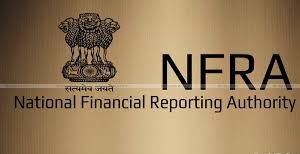B.N. Kirpal, J.
(1) The appellant in this Letters Patent Appeal had obtained a license for the import of the odolite. On 27th May, 1961 indents were placed on the foreign exporter, M/s Kovo through their agents in India, M/s Manohar Lal & Company. The indents were for 250 pieces of the odolites. The consignments were received in two lots. The first lot of 125 pieces was received and cleared. In May, 1962 the second lot of 125 pieces was received but was not cleared. The clearance was refused because according to the Customs Authorities the consignment had been undervalued.
(2) It appears that the Customs Authorities carried out search in the premises of M/s Manohar Lal & Company on 5th May, 1962. In respect of the first consignment of 125 pieces which had been cleared proceedings were initiated u/s 167(8) of the Sea Customs Act, (hereinafter referred to as the Act). Proceedings were also initiated with regard to the second consignment. On 19th June, 1964 two orders were passed being No. 40 and Order No. 41 in respect of the first and the second consignments respectively. By the said orders) the said consignments were ordered to be confiscated and in lieu thereof opportunity was given to get the goods released on payment of fine. In the appeals, which were filed, the same were partly accepted and by order dated 28th March, 1967 the fine was reduced to Rs. l,70,000.00 . Not being satisfied with the appellate order, the appellant filed revision petition to the Central Government. Number of contentions were raised both on merits as well as on law. The contentions were rejected and on 28th September, 1968 order was passed and the only relief granted was that the fine was reduced to Rs. 80,000.00 .
(3) The appellant thereafter filed a writ petition, being C. W. 640 of 1970 challenging the aforesaid orders passed against the appellant. By judge ment, dated 29th October, 1974 the aforesaid petition was dismissed. It was held by the learned single Judge that in exercising jurisdiction under Article 226 of the Constitution he would not go into the merits of the case in order to find out whether the goods had been undervalued or not. On the question of law, which was raised before the learned single Judge, namely, that in respect of the first consignment which had been cleared the provisions of Section 167 (8) were not attracted, the finding of the learned single Judge was against the appellant.
(4) The appellant has now filed the present appeal under Clause X of the Letters Patent. Mr. Madan Bhatia learned counsel for the appellant, has raised two submissions before us. His first contention is that the material document on the basis of which the order was placed by his client was dated 28th January) 1960, which was a quotation from M/s Kovo, and the said document had been ignored by the authorities. It was also contended in this connection that the Customs authorities have ignored Section 30 of the Act and have wrongly refused to consider the evidence submitted with regard to the value of the goods. The second contention of Mr. Bhatia is that on a correct reading of the Act as well as the Imports and Exports (Control) Act, 1947) the provisions of Section 167(8) were not applicable and reliance in this behalf is placed by him on the Supreme Court decision in
(5) In our opinion, it is not necessary to decide the second question which has been raised) because the first submission of Mr. Bhatia is well founded. The question which was involved in this case before the Customs authorities was as to whether the goods which had been imported had been undervalued or not. Section 30 of the Act defines "Real value" of the goods. The said section reads as follows :
"''Real value'' defined.-For the purposes of this Act the real value shall be deemed to be : (a) the wholesale cash price, less trade discount, for which goods of the like kind and quality are sold, or are capable of being sold, at the time and place of importation or exportation, as the case maybe, without any abatement or deduction whatever, except (in the case of goods imported) of the amount of the duties payable on the importation thereof; or (b) where such price is not ascertainable, the cost at which goods of the like kind and quality could be delivered at such place, without any abatement or deduction except as aforesaid."
(6) SUB-SECTION (a) of Section 30 deals with the wholesale cash price and Sub-section (b) is applicable where such wholesale price is not ascertainable. In either case, however) there has to be a determination by the Customs authorities. This determination can only take place by taking into consideration the evidence which is placed on the record. The appellant had produced before the Customs authorities various quotations and price lists of Japanese and German manufacturers of the odolite. It was contended in the revision petition that the said price lists show that the price of the odolite was approximately Rs. 400.00 and that the goods which had been imported had not been undervalued. The Central Government in its order in revision, while dealing with this contention, observed as follows :
" THE Government of India do not agree that the odolites made in Japan, Germany and Czechoslavakia can be considered to be of like kind and quality when the manufacturers are entirely different"
In our opinion, this clearly shows that the evidence which had been placed by the appellant was not at all considered. Merely because the manufacturers are different cannot by itself lead to the conclusion that the kind and quality of the goods with regard to which the evidence was placed was different. In any case, it was the duty of the Customs authorities to determine the correct price of the imported goods u/s 30 of the said Act. The non-consideration of the aforesaid evidence clearly vitiates the said order.
(7) With regard to the document, dated 28th January, 1960, in which M/s. Kovo has quoted the price of Rs. 400.00 it is not very clear as to whether the Central Government considered that document or not. There is no specific mention made in the order of the Central Government to the said document. The said quotation was recovered from M/s. Manohar Lal & Company at the time of the search which had been conducted. In the writ petition it was alleged that it was on the basis of the said quotation that the appellant placed the order. In the reply affidavit it had been stated that, "There is no evidence on record in the seized files in support of the contention that there was any enquiry from or any quotation offered by M/s Manoharlal & Co. offering to supply the and Tho The odolites at Rs. 400.00 ." It is evident, Therefore, that this document, dated 28th January, 1960 was, in all probability, not considered by the Government at all because in the reply affidavit, as it is evident from what has been quoted above, they did not admit that any such document was in existence. It was during the hearing of the writ petition that the records were produced and it was found that the quotation, dated 28th January, 1960 existed on the record of the Government. Mr. Bhatia has, Therefore, correctly contended that this document, which may have a bearing on the case, had not been considered.
(8) We are, Therefore, of the opinion that the Customs authorities should reappraise the evidence on record, in the light of the observation made by us, which they have refused to consider including the quotation, dated 28th January, 1960 as also the quotations from Germany and Japan and then come to a fresh finding as to what is the correct value of the odolite imported by the appellant. We are not deciding the question of law which has been raised by Mr. Bhatia, and the appellant is free to urge the said contention before the Customs authorities.
(9) The appeal is accordingly allowed, the judgment of the learned single Judge is set aside and the impugned orders are quashed. The case is remanded to the file of the Collector of Customs, Calcutta, concerned who will issue notices to the parties for hearing of the case within six weeks of the receipt of the order of remand. Parties to bear their own costs.

